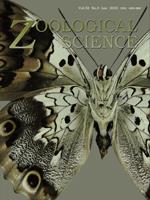Chironomid midges (Diptera; Chironomidae) are found in various environments from the high Arctic to the Antarctic, including temperate and tropical regions. In many freshwater habitats, members of this family are among the most abundant invertebrates. In the present study, the genome sizes of 25 chironomid species were determined by flow cytometry and the resulting C-values ranged from 0.07 to 0.20 pg DNA (i.e. from about 68 to 195 Mbp). These genome sizes were uniformly very small and included, to our knowledge, the smallest genome sizes recorded to date among insects. Small proportion of transposable elements and short intron sizes were suggested to contribute to the reduction of genome sizes in chironomids. We discuss about the possible developmental and physiological advantages of having a small genome size and about putative implications for the ecological success of the family Chironomidae.
How to translate text using browser tools
1 June 2015
Chironomid Midges (Diptera, Chironomidae) Show Extremely Small Genome Sizes
Richard Cornette,
Oleg Gusev,
Yuichi Nakahara,
Sachiko Shimura,
Takahiro Kikawada,
Takashi Okuda

Zoological Science
Vol. 32 • No. 3
June 2015
Vol. 32 • No. 3
June 2015
chironomids
C-value
ecological adaptation
genome size
insects




